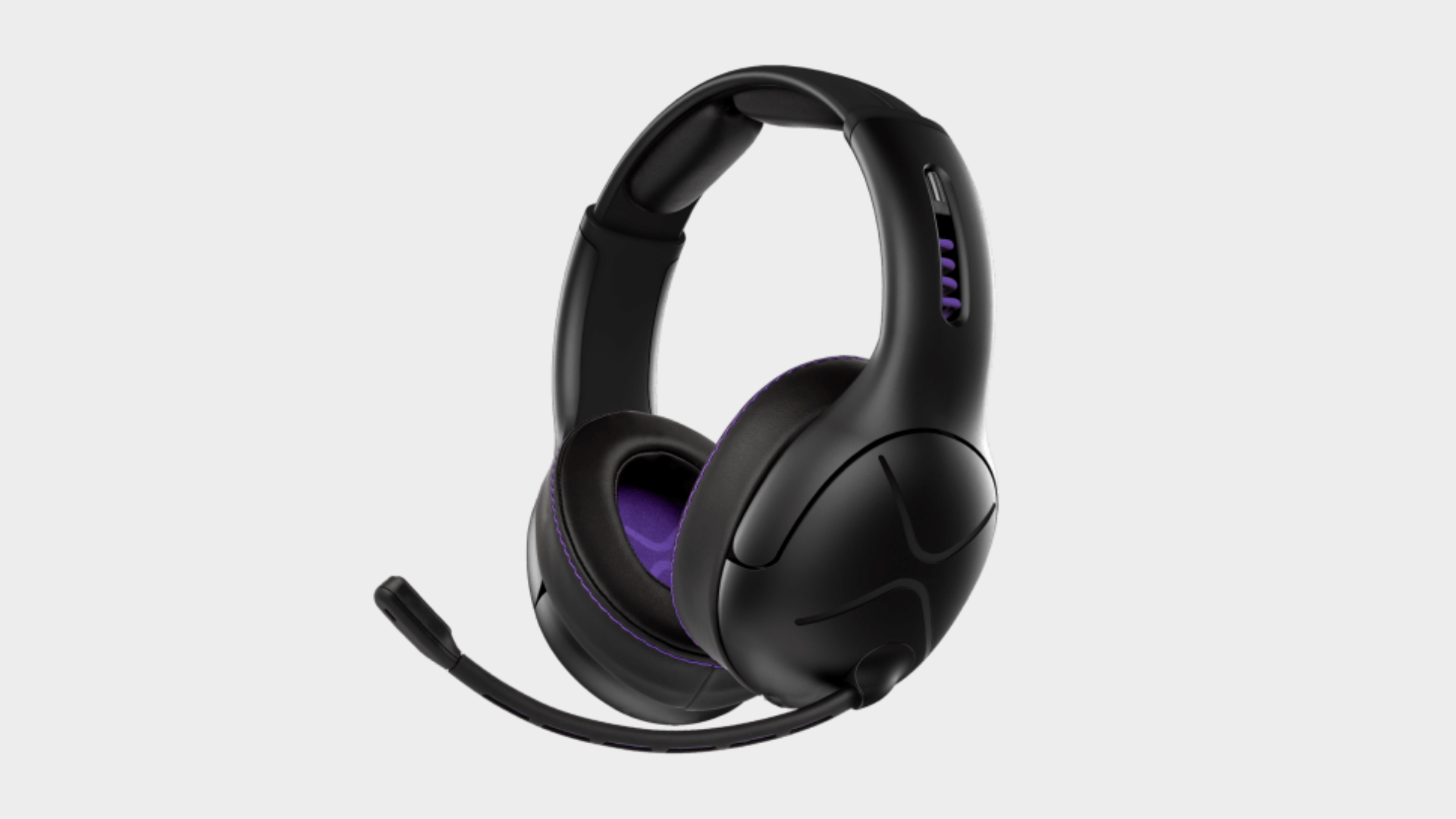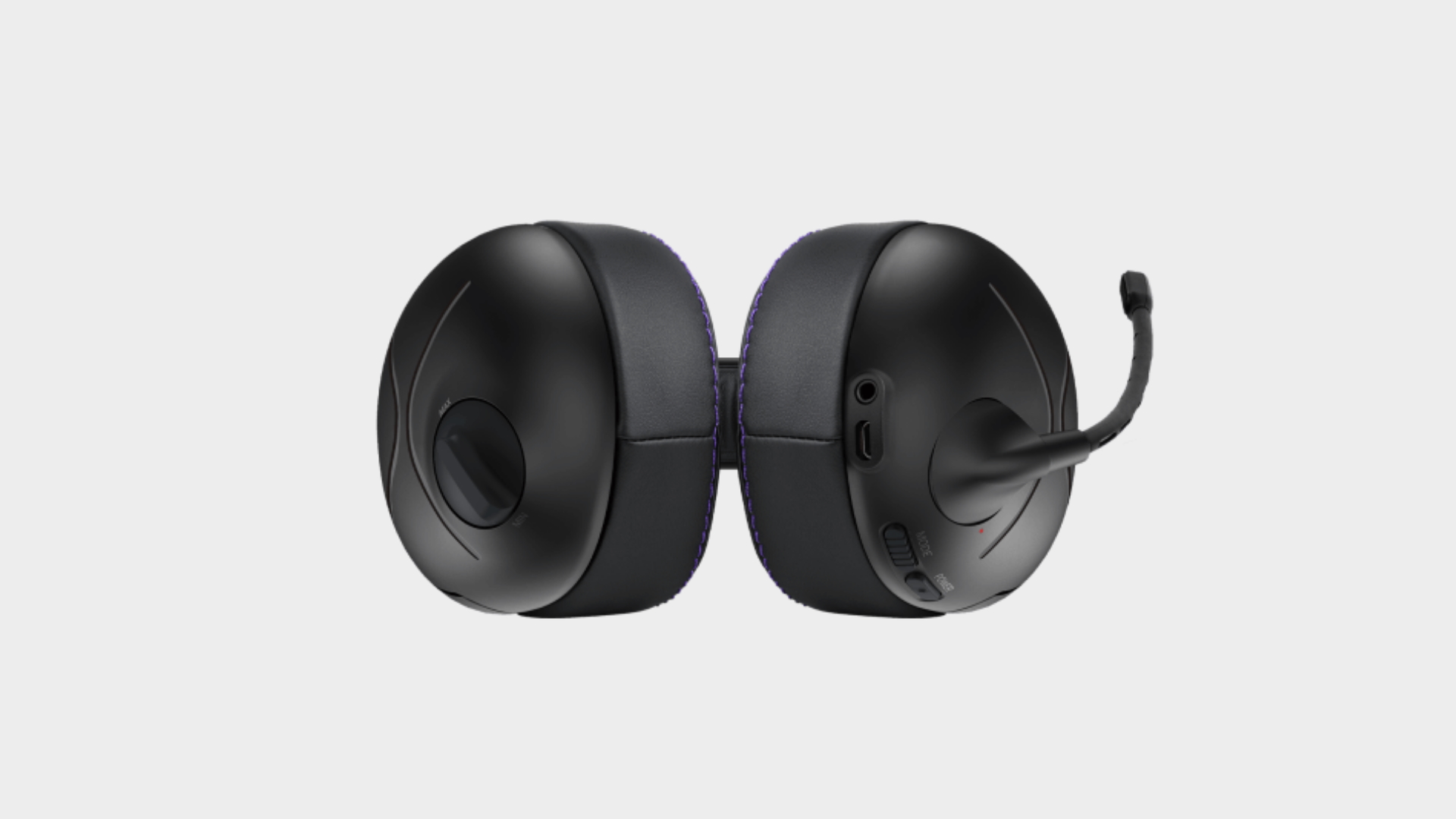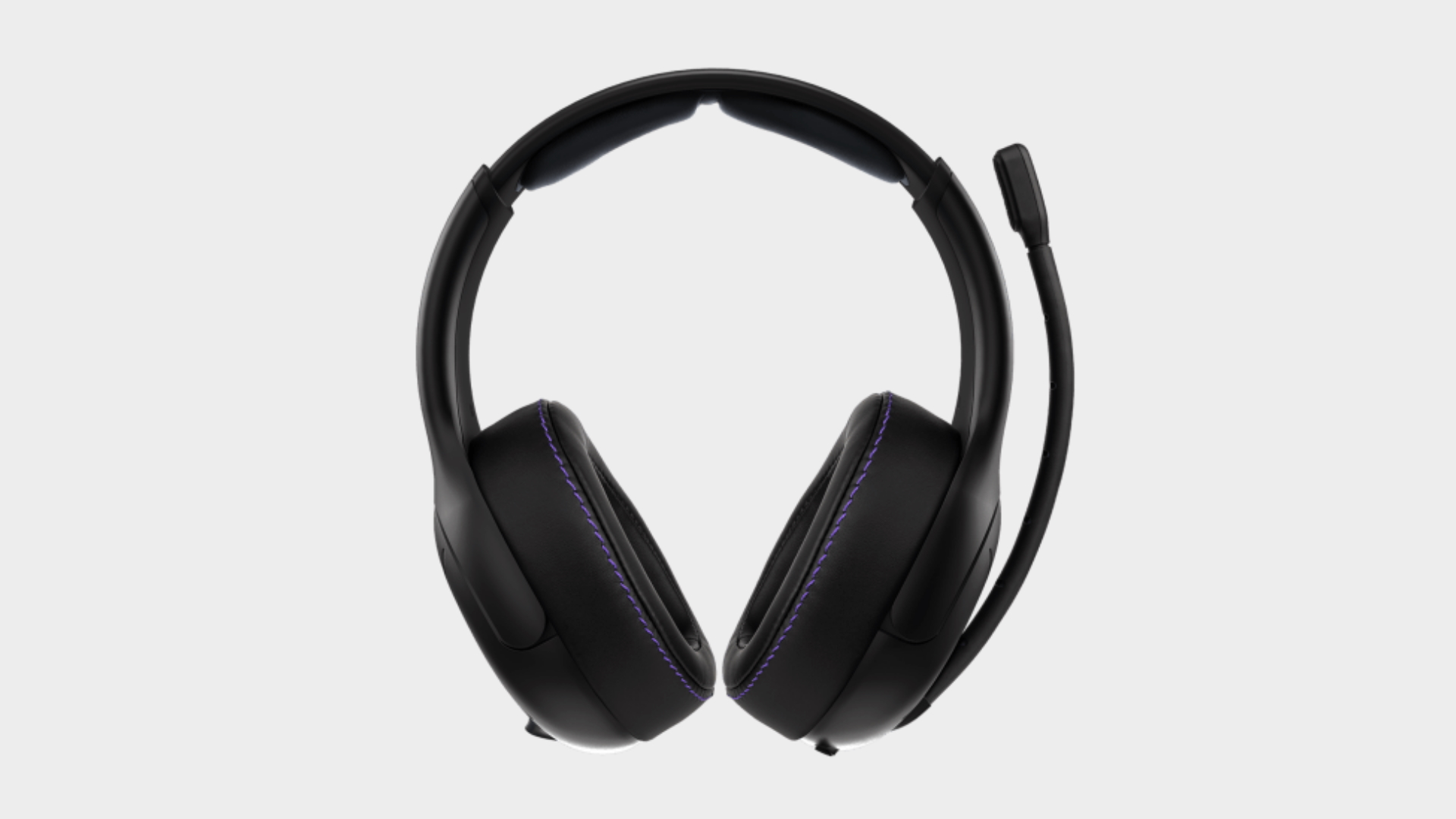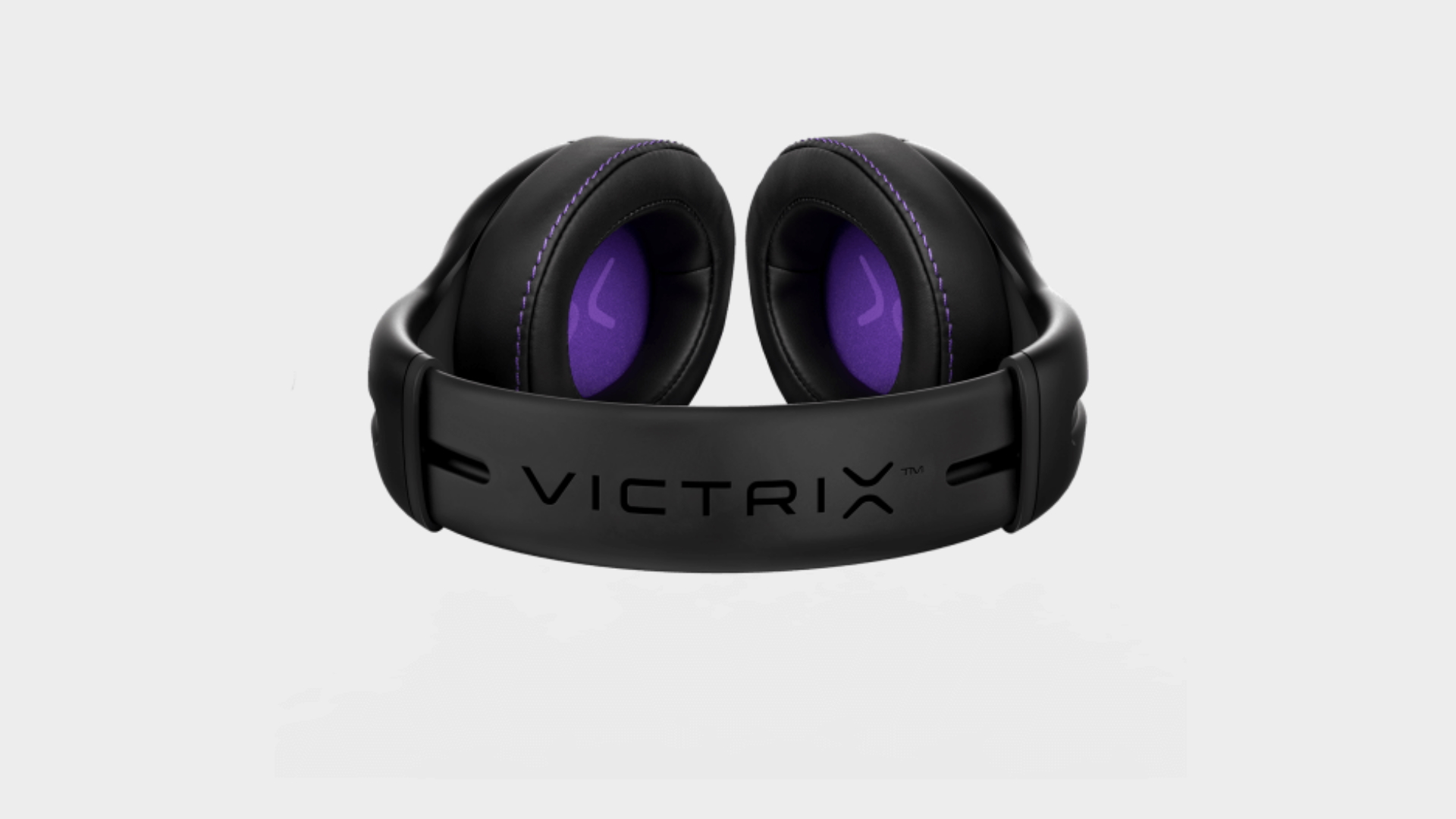Our Verdict
Victrix has taken its esports DNA and birthed a more affordable wireless gaming headset than its Pro AF range. But the end result, while certainly not cheap, has that feel to it. The audio is unspectacular and the design uninspiring.
For
- Solid wireless connection
- On-ear controls
- Easy connection
Against
- Feels a bit cheap
- Sounds is top heavy
- Volume dial is fiddly
PC Gamer's got your back
Competition can only be a good thing, especially when you're looking at premium PC goodies like wireless gaming headsets. Traditionally when you take the cables away from a good set of headphones that will jack up the price considerably. So, having another player in the game, means more competition, and hopefully lower prices as a result.
And Victrix is a company born of competition, a young company whose main aim has been to create the best esports peripherals for professional gamers, and streamers who want people to think they're professionals.
Its recent Gambit range is an attempt to distil the more high-end Pro AF kit into an affordable form you can take home. With the Gambit wireless gaming headset that means using the same 50mm drivers as the pricier pair, but using slightly cheaper materials in the headband and ear cups. So, no slow return memory foam here.
The end result is a headset that has the design notes of the Pro AF—and the audio, too—but has a necessarily cheaper look and feel. Still, even with a battery baked into the design to enable its wireless connection, that all makes the Gambit a lighter set.
Frequency range: 20Hz - 20,000Hz
Driver size: 50mm
Operating principle: Closed back
Connection: USB dongle wireless, 3.5mm cable wired
Battery life: 16+ hours
Weight: 301g
Its esports DNA can be seen in the game/chat audio control and on-ear volume dial, and the flip-to-mute mic also speaks to that heritage. That, and its more console oriented leanings, too. This is a licensed PlayStation and Xbox product, but y'know, that also means it can work without issue on the PC.
That's not to say there aren't some oddities when it comes to PC gaming, or just PC use in general. My system sees it as Xbox controller headphones, and defers to that the instant you turn it on and hook up to the USB wireless dongle. It's also lucky there's a volume dial on the ear cup because my system's volume control was not playing ball unless I ducked into the volume mixer (frustratingly hidden in Windows 11) and adjusted the specific app volume.


When it comes to the audio of the Gambit, they sound pretty good. I'd say they're a little top heavy for my tastes, making some things sound a little overly spikey to my ears. There is a decent level of bass, as you'd expect from a set of specifically gaming headphones, and that works in-game. They're also relatively detailed in their sound reproduction, making positional cues clear when you're stalking around the battlefield in, well, Battlefield.
But as soon as I flip back to my standard Razer Blackshark V2 Pro, one of the best wireless gaming headsets around, the difference in quality is stark. The audio is far richer in Razer's redesigned driver and driver chamber combo, perhaps showing that the actual sound isn't necessarily something that's key to Victrix's ambition as a gaming headset manufacturer. They also feel a lot nicer clamped to my skull, too.
The wireless connection is solid and responsive, and the 16 hour battery life is welcome, if nothing to really write home about. But I do find it odd that there's no power-saving feature that cuts in and shuts off the headset when it's not being used. I've chewed through the entire battery by forgetting to turn it off, and there's seemingly no way to check how much charge is left apart from a low battery tone when it's close to empty.
The Razer set is nominally far more expensive, with an MSRP of $180, but this long after the initial launch the Blackshark V2 Pro is pretty much always on sale. Right now it's some $150, but it's been as low as the $130 the Gambit retails for, and I know for certain which I'd rather have cuddling my ears.

Plus, I'm a snob and if I was paying over $100 for a gaming headset I'd want it to look sharper than the Gambit. The headband feels solid, and durable, but I can't help but feel the plastic frame makes it look a bit cheap. The peephole for the coiled purple cable is a nod to the better-looking exposed metal/floating cable looks of the Pro AF headset, but just kinda looks odd in this design. And while I'm talking design, while I love a physical volume control, the fiddly dial on the Gambit makes it awkward to get hold of while I'm in the middle of a match.
It's tough, because I don't really have anything against the Victrix Gambit; the audio's fine if unspectacular, and I do love ditching the cable. It's just there are comfortably better wireless gaming headsets for similar money. If the Gambit were a $60 set of cans then yeah, I'd be happily recommending it as an okay-sounding headset with responsive wireless chops, but at this price I'd suggest you look elsewhere.
Victrix has taken its esports DNA and birthed a more affordable wireless gaming headset than its Pro AF range. But the end result, while certainly not cheap, has that feel to it. The audio is unspectacular and the design uninspiring.

Dave has been gaming since the days of Zaxxon and Lady Bug on the Colecovision, and code books for the Commodore Vic 20 (Death Race 2000!). He built his first gaming PC at the tender age of 16, and finally finished bug-fixing the Cyrix-based system around a year later. When he dropped it out of the window. He first started writing for Official PlayStation Magazine and Xbox World many decades ago, then moved onto PC Format full-time, then PC Gamer, TechRadar, and T3 among others. Now he's back, writing about the nightmarish graphics card market, CPUs with more cores than sense, gaming laptops hotter than the sun, and SSDs more capacious than a Cybertruck.


